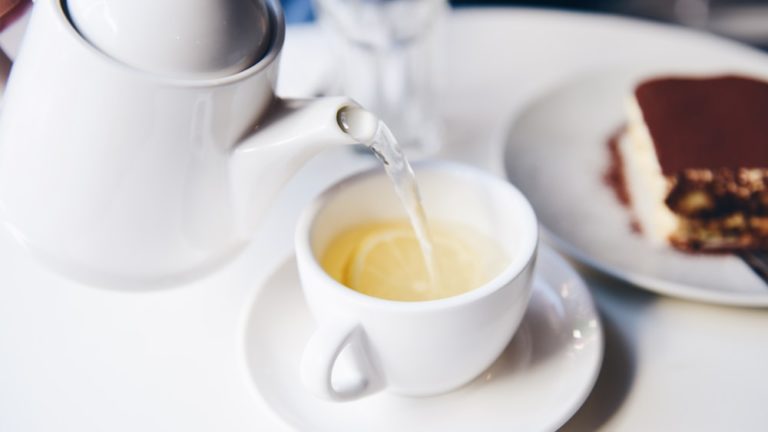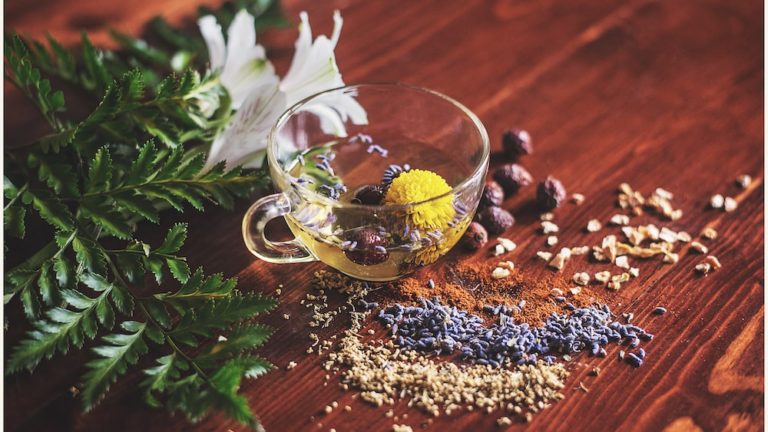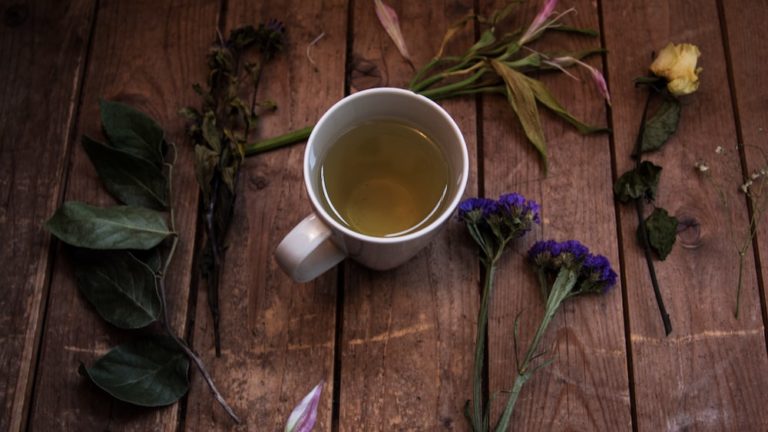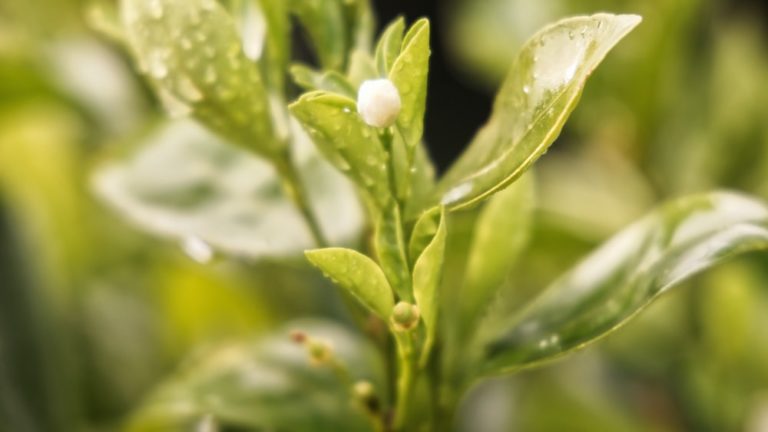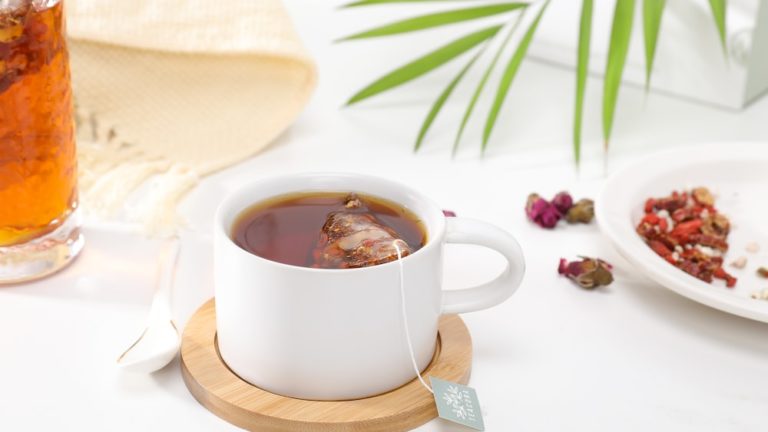When To Drink Matcha Tea: 9 Best Times For Optimal Benefits
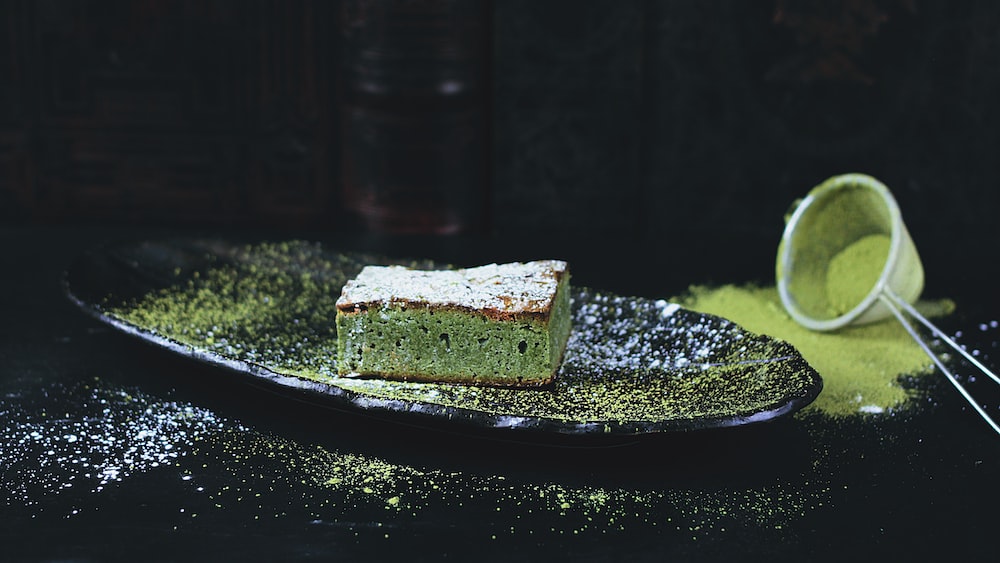
When To Drink Matcha Tea: 9 Best Times For Optimal Benefits
Hello, dear readers! Are you ready to embark on a journey to the land of the Rising Sun from the comfort of your own living room? Want to saunter down the tea gardens of Japan while sipping from your steaming mug, whiskers quivering in anticipation? Great! Because today, we’re exploring the art of savoring one of the healthiest green teas to sip on – Matcha.
Now, you might be thinking, “Hold on! I’m no Mad Hatter, constantly in a state of tea time. When exactly should I consume this majestic, emerald-hued concoction?” Well, we’ll get to that. So, put on your sun hats, folks, ’cause we’re about to plunge into the dazzling world of matcha tea. A world that is not just about deliciously warm liquids but a cultural phenomenon, an art form, and a powerhouse of health benefits all rolled into one little green tea leaf.
Understanding Matcha Tea
Dive in, tea enthusiasts and health junkies alike, as we whisk our way through the sea of Matcha knowledge. We’re talking about not just a regular cup of tea, but a tea that has been praised and cherished for its extraordinary benefits.
What is Matcha Tea?
So, what exactly is this matcha tea? You might have seen it gracing your Instagram feed or making its super photogenic presence known in the health aisle of your local supermarket. But let’s demystify this citrusy little green tea leaf that has a heart full of chlorophyll. Matcha is a fine powdered form of high-quality green tea leaves, mainly from the Camellia sinensis plant.
These leaves are grown in the shade, which potentially enhances their nutritional value. The entire leaf is utilised, which gives matcha its distinctly strong, vibrant flavor and a bevy of health benefits that make it the Hulk of the tea world.
Matcha is a fine powdered form of high-quality green tea leaves that is grown in the shade, giving it a strong flavor and a range of health benefits.
Health Benefits of Matcha Tea
Feeling like a rabbit stuck in a corporate hat? Need some liquid courage that’s legal and healthy? Say hello to the refreshing and health-enriching matcha! It packs a punch in terms of health perks. Is it a bird? Is it a plane? No, it’s Super Tea!
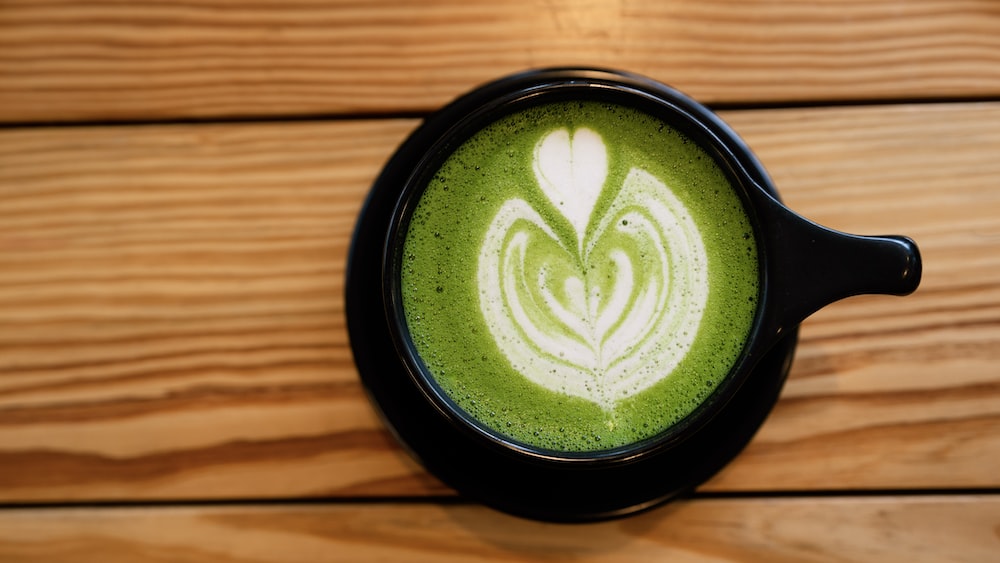
Matcha tea is rich in antioxidants that can aid in combating oxidative stress. It can also lend a helping hand in managing weight, enhancing cognition, and bringing a sense of calm over your twitching, stress-riddled senses. And this, my dear friends, is just scratching the surface!
The Optimal Times to Drink Matcha Tea
Here comes the sandman, sprinkling the question you’ve all been waiting for – ‘what’s the best time to invite matcha for a tea party?’ Enter the realm of optimal matcha times!
1. Starting Your Day: Morning
What better way to kickstart the day than with a heady brew of matcha? This green goliath can summon the Sun for you with its infusion of caffeine and amino acid L-Theanine. This dynamic duo can Jekyll-and-Hyde your morning grogginess, replacing it with a gentle, alert awakeness that doesn’t jolt you like coffee.
It’s like the gentle nudge of your pet in the morning, ushering you towards the start of a new day, as the world outside your window yawns, stretches and comes alive with the rising sun – talk about a sunshine filled cuppa!
2. Midday Boost: Afternoon
As the clock hits teatime, energy levels sometimes like to play an impromptu game of hide and seek. Here, matcha can be the perfect pick-me-up, as its steady release of caffeine can help defeat the afternoon slump and keep you cruising through your to-do list.
So, blend in a cup of matcha to your afternoon routine and sail through the remainder of the day with poise and an abundance of energy!
3. Pre-Workout Energy
Let’s say it’s time to pump those muscles or take those yoga poses, but procrastination seems to have other plans. Here enters the hero of our tale – a pre-workout cup of matcha. This green tea royal aids in boosting endurance, helping you last longer in your workouts.
The presence of Epigallocatechin gallate (EGCG) could also aid in fat oxidation, helping your body turn fat into fuel during a workout. Go on, conquer those workout goals, powered by the force of matcha!
4. Post-Meal Digestion Aid
Remember Dickens’s iconic phrase, ‘Please, sir, I want some more’? Would you be surprised if I told you Oliver was probably asking for more matcha? A cup of matcha tea post meal can help facilitate digestion, making it an excellent evening companion.
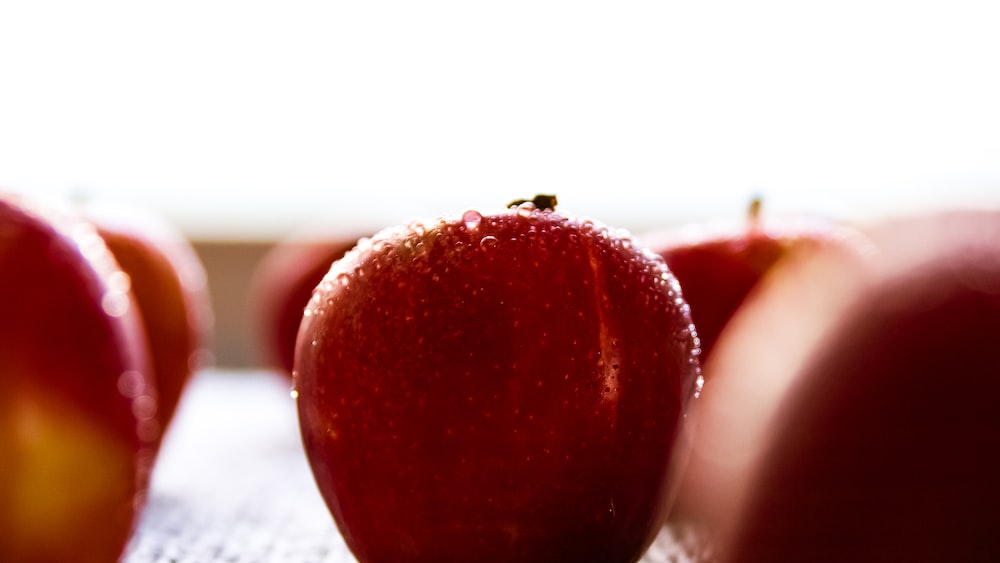
Its potent antioxidant, catechin, can assist in regulating blood sugar levels, making it a beloved pal for people watching their sugar intake. So, don a top hat, brew a cup of matcha, and fancy yourself an English lord with a belly full of hearty grub and a cup full of digestive health.
Drinking a cup of matcha tea after a meal can aid digestion and regulate blood sugar levels, making it a beneficial choice for those watching their sugar intake.
5. Mental Focus and Clarity
Ah, mental clarity. That elusive unicorn we all seek. Well, listen up folks, matcha tea might just be your ticket to finding it! It all comes down to a little thing called theanine. This friendly amino acid happens to be higher in matcha than in other types of tea, thanks to how matcha leaves are grown, shaded, and harvested. Basically, it’s matcha 101.
This amazing stuff boosts alpha waves in the brain, promoting relaxation and mental clarity without causing drowsiness. Imagine that – a state of mindful calm, without fighting the urge to nod off. You’re alert, but chill. This makes it the perfect beverage for those brain-intensive tasks or creative endeavors.
6. Stress and Anxiety Relief
Stress. We all have it to some degree, and nothing exacerbates it like our frenzied, 24/7 lives. But here’s a comforting thought – have you ever thought sipping on your matcha tea might be akin to a mini spa break for your neurons?
Just like it aids mental clarity, theanine in matcha reduces stress and anxiety by enhancing our brain’s happy neurotransmitters. The result? A better mood, less anxiety, and lower stress levels. All the while, you’re enjoying a delicious cup of matcha tea, savoring each moment. And no, it’s not magic, it’s just your daily dose of Encha organic matcha doing its thing.
So next time you’re feeling a bit fraught, just put on the kettle and let the matcha work its magic!
7. Boosting Metabolism
Saving the best for the last – well, not really the last – but I mean, who doesn’t love a naturally boosted metabolism!? Like a finely tuned machine, our bodies require fuel and maintenance, and matcha acts as a clever mechanic, tweaking things just the right way.
Studies suggest that matcha can help increase energy expenditure and fat oxidation. Yep, that means it could help you burn more calories without breaking a sweat – pretty cool, right? It’s all thanks to the catechins, a type of antioxidant found abundantly in matcha.
To sum up, this emerald-green hero may promote a faster metabolism, while also helping your body use up its fat stores. Talk about light-hearted way to stay fit!
8. Skin Health Enhancement
The beauty industry is constantly buzzing about the next superfood skincare ingredient, and guess what’s hot and trending now? Yes, you guessed it right – it’s matcha tea!
From face masks to creams, this powdered green tea has taken the beauty world by storm with its antioxidant-rich prowess. It harmonizes and rejuvenates, leaving your skin refreshed and radiant.
While beauty treatments are all well and good, nothing really beats the age-old wisdom of a balanced diet. Drinking matcha regularly could offer prevention from UV damage and improve your overall skin health. So, next time you go matcha shopping, remember you’re investing not just for your taste buds or your perfect Instagram picture, but for your skin too.
9. Before Bed: Sleep Aid
Lastly, make matcha your bedtime ritual. There’s a certain irony in the fact that something that can boost your energy levels could also lull you to sleep. But it’s no joke. Matcha, with its theanine content, can be a beacon of serenity leading you towards a good night’s sleep.
The gentle, calming effects of theanine can aid in a more peaceful sleep by reducing stress and promoting relaxation. Although matcha contains some caffeine, the calming properties of theanine balance this out, making it a suitable beverage before bed.
Make matcha your bedtime ritual to promote a more peaceful sleep and reduce stress, despite its energy-boosting properties, thanks to the calming effects of theanine.
Preparing Matcha Tea
The preparation of matcha tea is a poetic blend of tradition and mindfulness, appealing even to the modern palate. Below we discuss both traditional ways and modern twists to immerse yourself in a true matcha experience.
Traditional Method
Steeped in the centuries-old ritual of the Japanese tea ceremony, the traditional method of preparing matcha is a world away from the quick dunking of a tea bag we are used to. Here’s a quick summary for those new to the traditional process — don’t worry, it’s matcha 101!
First, the matcha powder is scooped into a bowl with a bamboo teaspoon, followed by adding hot water, not boiling. A bamboo whisk is then used in a ‘w’ motion to mix the tea until it becomes frothy. You don’t have to strive for coffee-shop-level froth but a layer of small bubbles on the surface indicates the job is well done!
As for the whisk, before your horror at the thought of another kitchen gadget sets in, consider this. Bamboo whisk makes the difference between a mediocre and an excellent bowl of matcha. Plus, it’s more sustainable than a metal one and easier to clean. Worth considering, don’t you think?
Modern Ways
For those who might not have the luxury of time or the right tools at hand, there’s no need to abandon the ship just yet. Modern innovations and techniques have certainly made it easier to prepare matcha tea.
For starters, a small, battery-operated milk frother can come in handy if you don’t have a bamboo whisk. Additionally, adding a dollop of warm milk tweaks the traditional recipe into a creamy, frothy matcha latte. Remember, there’s no right or wrong way to enjoy your matcha, it’s all about what suits your palette. Encha organic matcha lends itself beautifully to both traditional and modern preparations.
And if you want to think beyond sippable matcha, why not stir it in your oatmeal, or whisk it in your pancake batter? The possibilities are only limited by your imagination!
Potential Side Effects and Precautions
While matcha tea is a treasure trove of health benefits, it’s important to enjoy it responsibly. It’s always wise to keep an eye out for any potential side effects, possible interactions with medications, and of course, the caffeine content. Despite its many virtues, going overboard might indeed mar a good matcha experience. So, as with most things in life, moderation is the keyword.
Matcha Tea and Caffeine
My dear tea connoisseurs, brace yourselves for the invigorating tango of matcha tea and caffeine! Yes, we’re about to dive into their dance. Just like a cat sneaking about, caffeine in matcha is rather crafty. Distracting us with a smooth, rich flavor while slowly and quietly pouncing on our drowsy senses. And believe me, this ain’t your ordinary coffee-shop caffeine. This fine stimulant safely ensconced in verdant matcha leaves, dances right into our system, sans the jitters or crash.
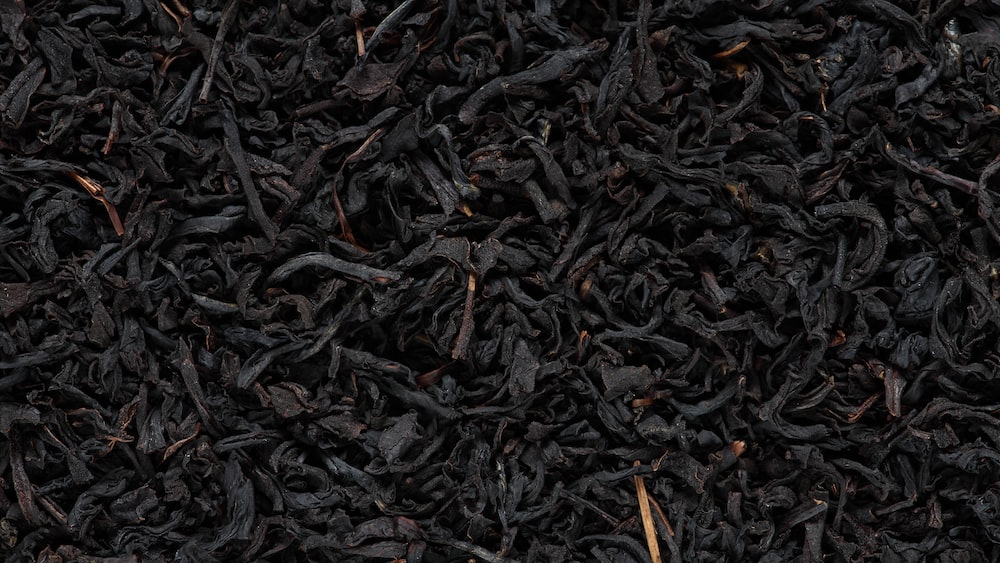
Here’s an interesting fact: a cup of matcha sings the tune of around 70mg of caffeine, contrasting sharply with the typical espresso’s less melodious 60mg. But wait, before you whisk off those worries about sleepless nights, tea-master Louise Cheadle intriguingly notes that matcha bursts with an amino acid called L-theanine which promotes relaxation as well. Hah! The paradox of this dance – a smooth, paced sway of stimulation and tranquility.
Possible Interactions
Navigating the slightly turbulent sea of possible interactions with matcha tea and other substances might have you twitching your nose, like a rabbit sniffing out a carrot. It’s a bit of a balancing act, my friends.
Starting off, warfarin and aspirin users, beware: matcha, with its high vitamin K content, could potentially interfere with blood-thinning medications like these. Your blood clots might just start throwing a party, and trust me, we need those fellas at a nice, safe social distance.
Next on our list, our beloved Iron: the supplement, not your trusty steamer. Matcha contains compounds called polyphenols that could bind iron and hamper its absorption. No one wants to dance the dance of anemia, right?
Finally, let’s not forget our good friend, caffeine. If you’re already chugging coffee or energy drinks like a ship in full sail, adding matcha into the mix could just tip the whole boat. Yes, we love a good energy boost, but no one’s queuing up for jittery palpitations or disrupted sleep, right?
Frequently Asked Questions
1. Can I drink matcha on an empty stomach?
Matcha on an empty stomach might not be your best bet. The potent bundle of tea leaves can be a tad bit too intense for some, possibly leading to stomachache or nausea.Start with food, let matcha be your second course. No need to chug matcha like it’s going out of style, slow and steady wins the matcha race!
2. Should I drink matcha before or after eating?
The before or after query is often a conundrum in the tea world. You could drink matcha both before and after meals, but bear in mind, consuming it post-meal could aid digestion. Yep, it’s like having your own personal roto-rooter for food.
3. How much matcha can I drink in a day?
The quantity of matcha per day really depends on your caffeine tolerance. A standard would be 1-2 cups a day, but remember, even a good thing can well, be too much!
4. Does matcha tea have any side effects?
Side effects with matcha tea are generally in the realm of “too much of a good thing. Over-consumption could lead to caffeine overload. Always best to enjoy matcha in moderation, my friends.
Conclusion
And there we have it, my tea comrades- the 911 on sipping your matcha at the best times for optimal benefits. Who knew so much could be steeped into one tiny cup, huh?
Whether you’re looking for an energy kickstart, a digestive aid, or a mental clarity boost, matcha stands proudly, whisk in hand, to cater to your needs. Remember though, while it’s fascinating to dance the dance with our green buddy, always respect the caffeine content and potential drug interactions.
So don your matcha robes, balance that whisk, and let’s dive into the ceremony of nurturing health, one cup at a time. Before I bid adieu and let you whisk off into your matcha-infused journey, remember, as Louise Cheadle beautifully puts it, “tea is more than an idealization of the form of drinking, it is a religion of the art of life.”
Until we meet again, tea-lovers. Stay steeped in health. Warmly, Zoe.


